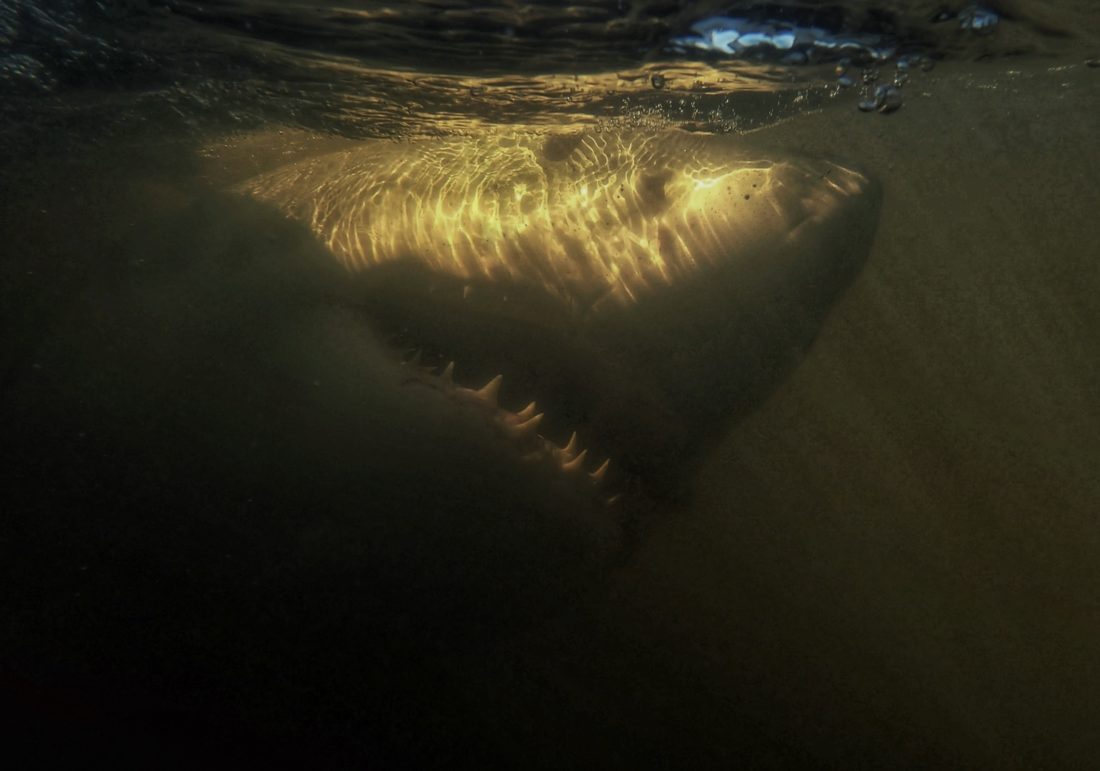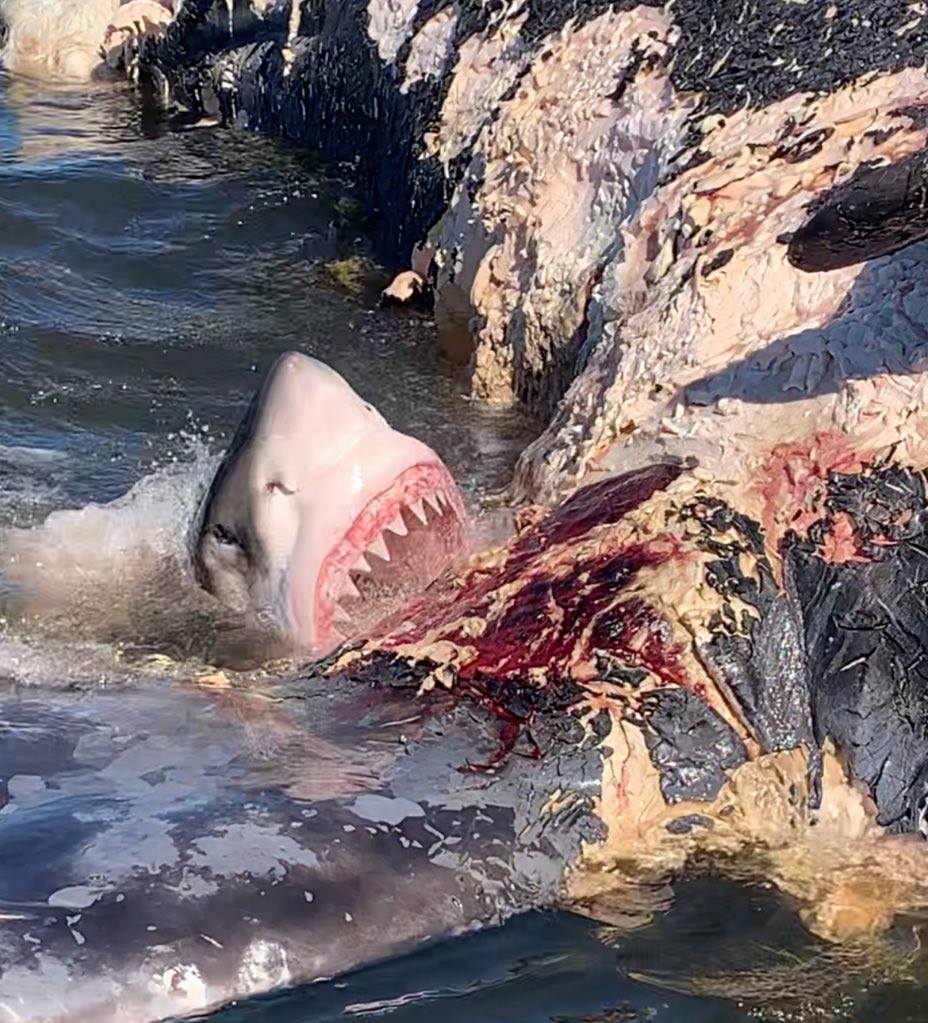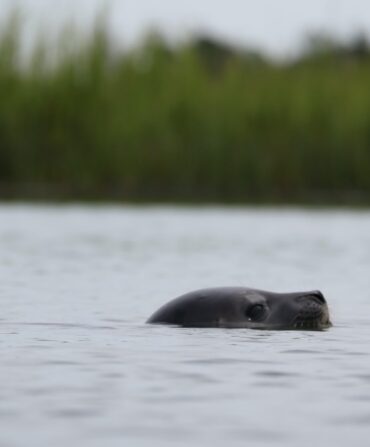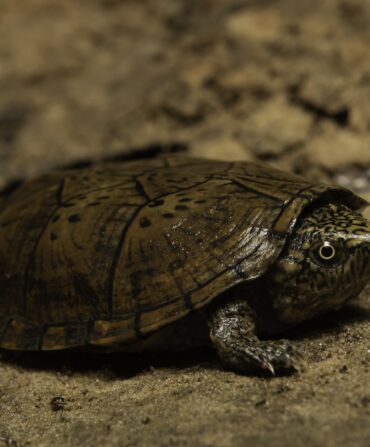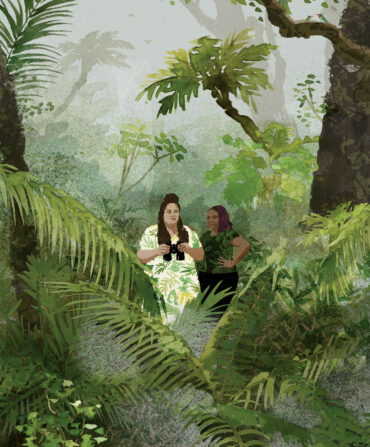It’s not for nothing that people call Captain Chip Michalove of Outcast Sport Fishing in Hilton Head, South Carolina, the shark whisperer—he catches great white sharks to tag them for scientists and was the first person in the state of South Carolina to do so. But the gathering of huge great whites he saw feeding on a whale carcass off Myrtle Beach last Thursday tops anything he’s experienced yet. “I didn’t want to leave,” he says. “If the weather had allowed, I would have stayed out there for days.”
Unfortunately, the whale was a North Atlantic right whale—the most endangered whale in the world—that had died after becoming entangled in fishing gear. But for the great whites, listed as a vulnerable species themselves, it was a welcome opportunity. “By looking at the currents and the wind, we were able to find the whale, and for forty-five minutes we didn’t see a thing,” Michalove recalls. “Then they showed up, and it was a show.”
(Video by Bryan Frazier, South Carolina Department of Natural Resources)
Michalove estimates that about fifteen great whites came to the whale, attracted by the blood and oil, which they can smell from thirty to forty miles away. “It’s like a 50,000-pound chum dispenser,” he says. “It’ll attract anything in the area.” He and his crew floated within six feet of the carcass for about eight hours. “We were mistaken for the whale a few times—the sharks were biting the boat, and one grabbed the motor and shook it so hard that I was a little concerned.” But not enough to be turned away from the rare spectacle. “We were within sight of the beach, and if our boat sank, we were fully prepared to sit on the whale,” he says. “It was the size of a school bus.” The situation also presented an opportunity to tag a few of the sharks.
One of the largest, a roughly sixteen-foot-long female, swam so close to the boat that Michalove was able to put the tag under her skin without her even realizing. “We’re learning more about great white sharks than we ever have before,” says the captain, who has caught and tagged thirty-seven of them to date.
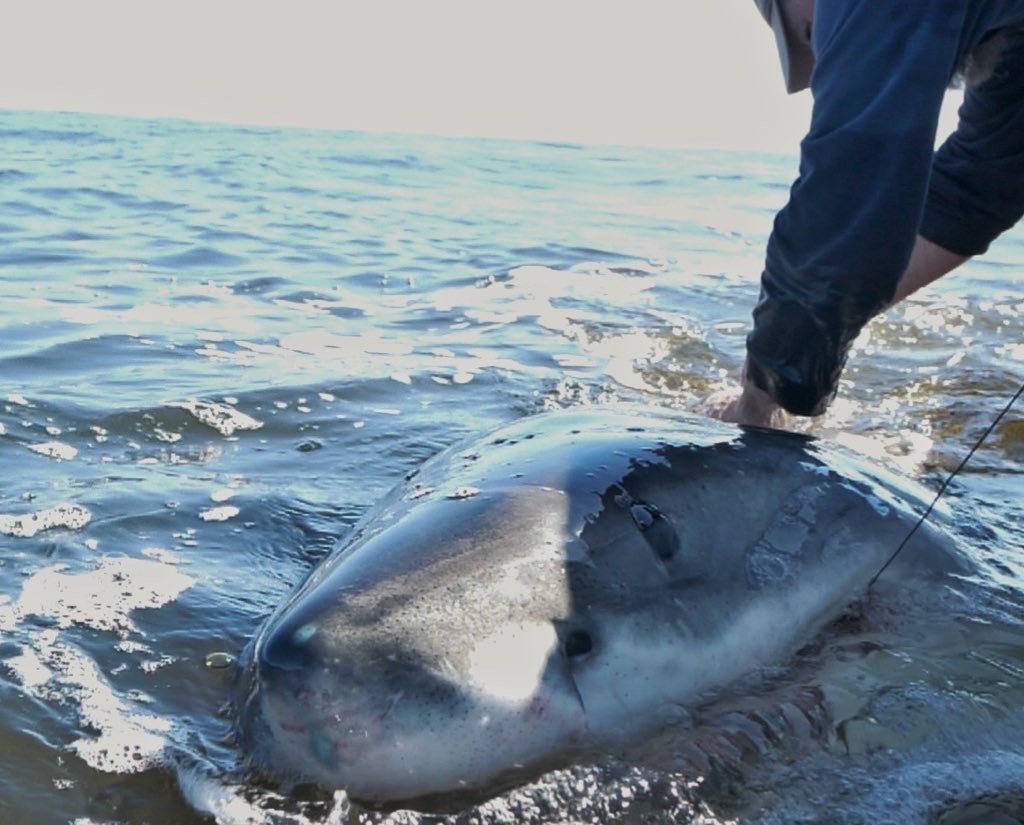
Since Thursday, he’s been itching to get back out on the water for an update on the feeding frenzy but has been hampered by bad weather. He looks forward every year to the winter months, when the awe-inspiring sharks are off the Florida, Georgia, and Carolina coasts. Any day now, they’ll head back up toward New England and Canada. For the great whites off Myrtle Beach, it’s safe to say they’ll start the trip with full bellies.
